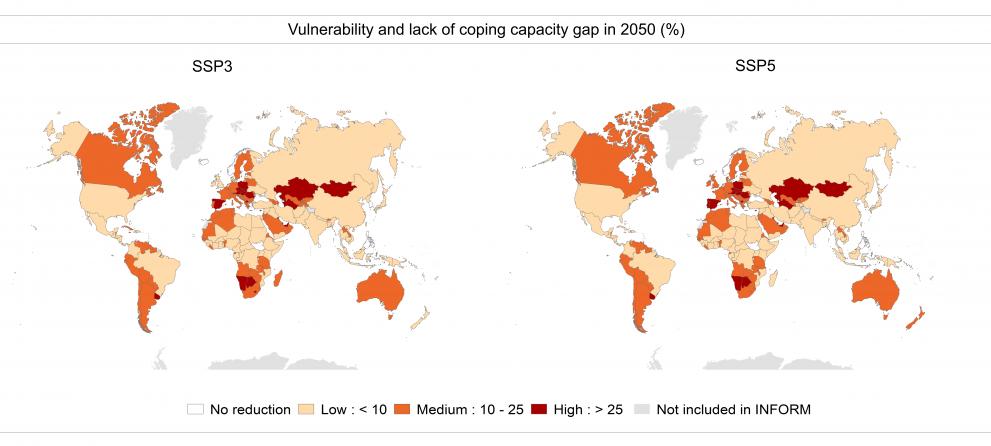
With continued global warming induced by enhanced greenhouse gas concentrations, extreme weather and climate related risks are becoming increasingly amplified.
To tackle the risk of severe and frequent climate related disasters, greater science – policy interface based on improved knowledge, stronger evidence and a greater focus on Disaster Risk Reduction and Climate Change Adaptation are essential.
Global multi-hazard risk assessment tool INFORM Risk
INFORM Risk is a global multi-hazard risk assessment tool that combines hazards, exposure, vulnerability and lack of coping capacity indicators with the purpose to quantify the risk of humanitarian crisis.
It was developed in response to needs of numerous organizations to improve the common evidence basis for risk analysis.
The Joint Research Center of European Commission is the scientific and technical lead, and United Nations Office for the Coordination of Humanitarian Affairs is the coordinator of INFORM.
The need of investments in reducing vulnerability and increasing coping capacity
Recent collaboration between Euro-Mediterranean Center on Climate Change and Joint Research Centre of European Commission results in an upgrade of risk index that includes projections of exposure to climate-related hazards (floods and droughts) and allows us to estimate what level of vulnerability and lack of coping capacity reduction would be required to offset increasing risk.
We consider Representative Concentration Pathway (RCP) 8.5 high greenhouse gas concentration scenario, and Shared Socio-economic Pathways (SSP) scenarios SSP3 and SSP5 population projections for the mid-21st century.
The largest mid-century vulnerability and lack of coping capacity gap are observed in much of Europe, Western and Northern Asia and Africa (Figure 1).
Countries located in such regions will need heavy investments in reducing vulnerability and increasing coping capacity to keep the manageable risk levels.
Changes to risk and vulnerability (lack of coping capacity) are mainly driven by increases in climate-related hazards rather than changes of exposure.
Hence, Disaster Risk Reduction and Climate Change Adaptation should be the main policy response to mitigate the adverse effects of climate-related amplified hazard and risk.
INFORM Risk can benefit humanitarian crisis management planning
Overall, the upgraded INFORM Risk can benefit humanitarian crisis management planning as well as designing effective disaster risk reduction and climate change adaptation strategies and plans.
Moreover, when considered within an operational framework, it allows for objective measurement and comparison of performance/impact of policy actions on the reduction of vulnerability and lack of coping capacity at a global level.
The results of the study are recently published in the journal of Global Environmental Change.
Details
- Publication date
- 12 January 2022
